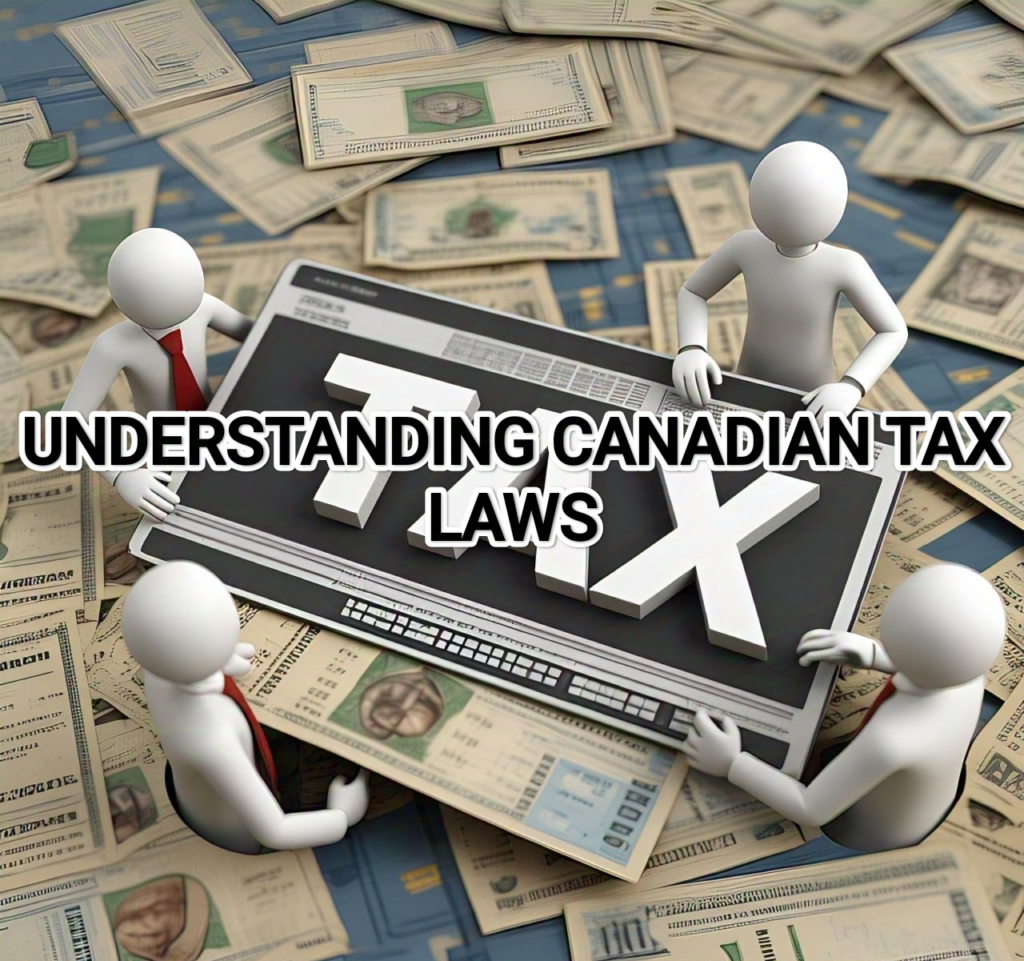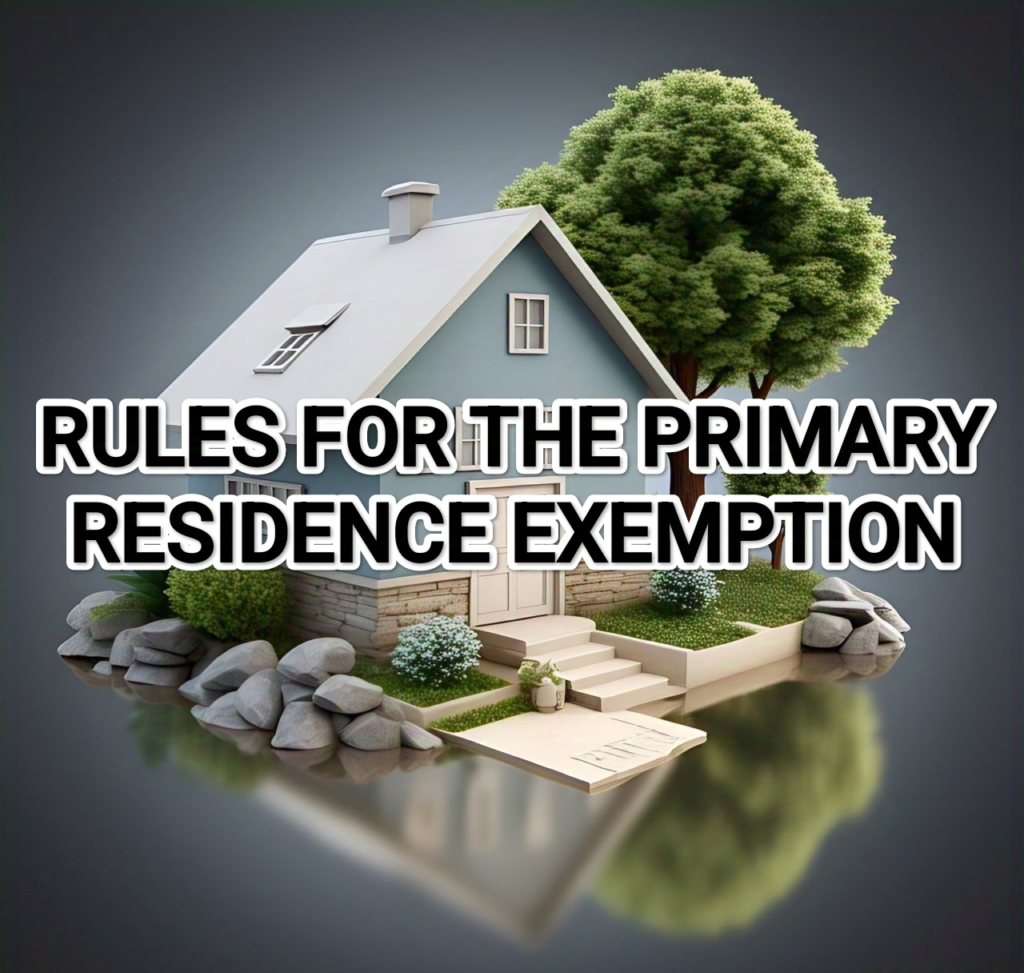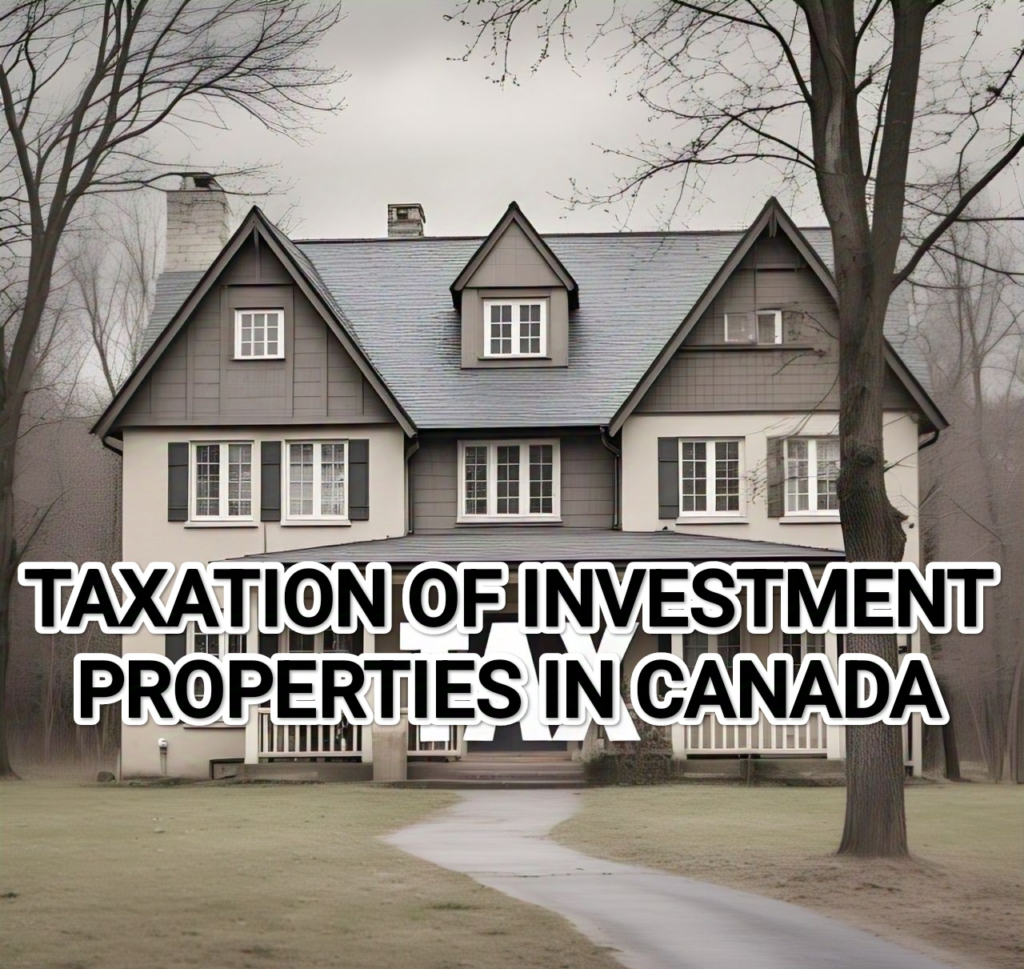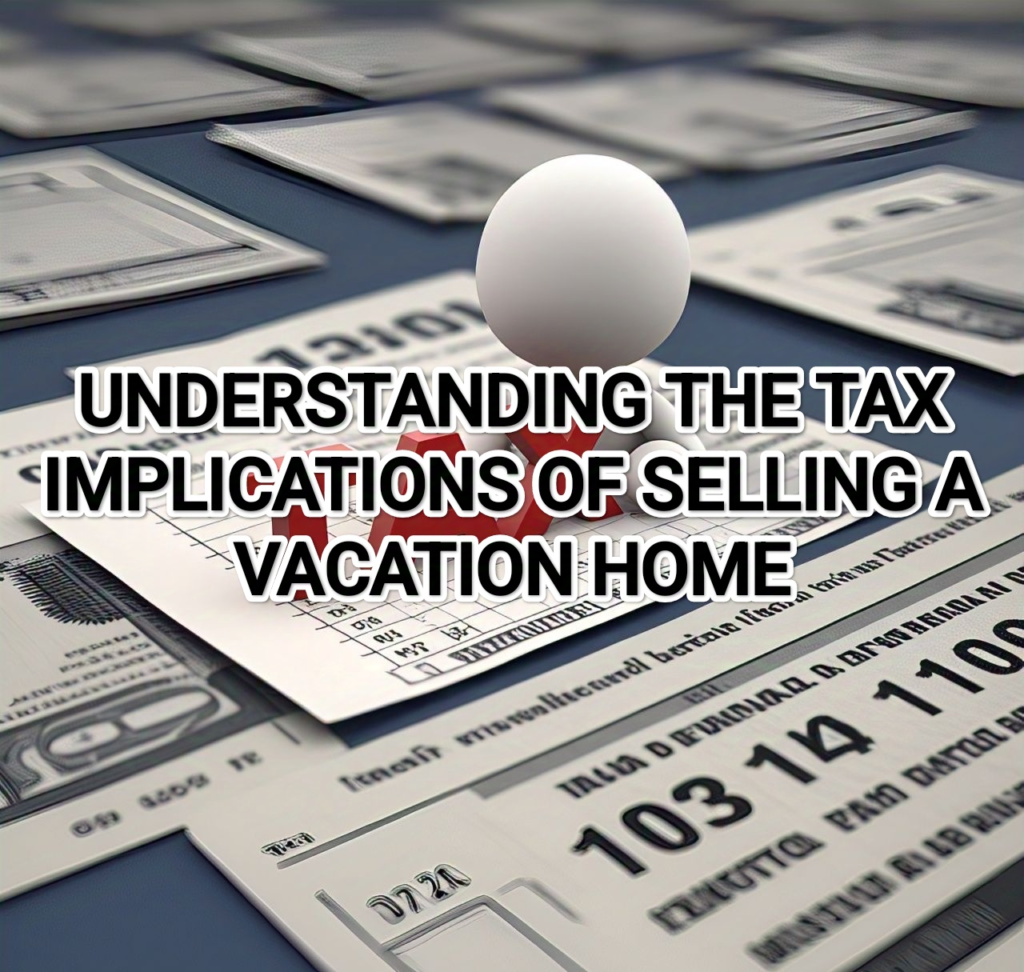MAXIMIZING YOUR PROFITS: 7 EXPERT TAX PLANNING STRATEGIES FOR SELLING A PROPERTY IN CANADA
Selling a property in Canada can be a complex and profitable process. However, without proper tax planning, you may end up paying more taxes than necessary. In this article, we will explore expert tax planning strategies to help you maximize your profits when selling a property in Canada.
UNDERSTANDING CANADIAN TAX LAWS

Before we dive into the tax planning strategies, it’s essential to understand the Canadian tax laws surrounding real estate. In Canada, the sale of a property is subject to capital gains tax. Capital gains tax is calculated on the profit made from the sale of a property, which is the difference between the sale price and the original purchase price.
Here’s a detailed explanation of the Primary Residence Exemption: Rules and Exceptions:
What Is The Primary Residence Exemption?
The Primary Residence Exemption is a tax exemption in Canada that allows homeowners to avoid paying capital gains tax on the sale of their primary residence.
RULES FOR THE PRIMARY RESIDENCE EXEMPTION

To qualify for the Primary Residence Exemption, the following rules must be met:
1. The property must be your primary residence: The property must be the place where you normally live, and you must have lived there at some point during the year.
2. You must be a Canadian resident: Only Canadian residents can claim the Primary Residence Exemption.
3. The property must be a dwelling: The property must be a house, apartment, or other dwelling that you live in.
4. You must have owned the property: You must have owned the property, either alone or jointly with someone else.
Exceptions to the Primary Residence Exemption
There are some exceptions to the Primary Residence Exemption:
1. Rental properties: If you rent out your primary residence for more than 50% of the year, you may not be eligible for the exemption.
2. Vacation homes: If you own a vacation home that you don’t live in, you won’t be eligible for the exemption.
3. Business use: If you use your primary residence for business purposes, you may not be eligible for the exemption.
4. Multiple properties: If you own multiple properties, you can only claim the Primary Residence Exemption on one property per year.
How To Claim The Primary Residence Exemption
To claim the Primary Residence Exemption, you’ll need to:
1. File Form T2091: You’ll need to file Form T2091, “Designation of a Property as a Principal Residence,” with the Canada Revenue Agency (CRA).
2. Report the sale on your tax return: You’ll need to report the sale of your primary residence on your tax return.
Penalties For Not Reporting The Sale Of A Primary Residence
If you don’t report the sale of your primary residence on your tax return, you may be subject to:
1. Penalties: You may be subject to penalties and fines for not reporting the sale.
2. Interest: You may be charged interest on any taxes owing.
3. Loss of exemption: You may lose the Primary Residence Exemption if you don’t report the sale correctly.
TAXATION OF INVESTMENT PROPERTIES IN CANADA

Investment properties in Canada are subject to taxation on the income earned from renting them out, as well as on any capital gains realized when selling the property.
Types of Investment Properties
There are several types of investment properties in Canada, including:
1. Rental Properties: Properties rented out to tenants, generating rental income.
2. Real Estate Investment Trusts (REITs): Companies that own or finance real estate properties, providing a steady income stream.
3. Real Estate Mutual Funds: Investment funds that pool money from investors to invest in real estate properties.
4. Vacation Properties: Properties used for personal vacation purposes, but also rented out to generate income.
Taxation of Rental Income
Rental income earned from investment properties is subject to taxation in Canada. The tax implications include:
1. Rental Income: Rental income is taxable and must be reported on the owner’s tax return.
2. Expenses: Expenses related to the rental property, such as mortgage interest, property taxes, and maintenance costs, can be deducted against rental income.
3. Capital Cost Allowance (CCA): CCA is a tax deduction that allows owners to depreciate the value of the property over time.
Taxation of Capital Gains
When selling an investment property, any capital gains realized are subject to taxation in Canada. The tax implications include:
1. Capital Gains: Capital gains are calculated as the difference between the sale price and the original purchase price.
2. Inclusion Rate: Only 50% of the capital gain is subject to taxation.
3. Tax Rates: The taxable capital gain is added to the owner’s income and taxed at their marginal tax rate.
Tax Planning Strategies
To minimize tax liabilities, investment property owners can consider the following tax planning strategies:
1. Income Splitting: Splitting rental income with family members or partners can reduce taxable income.
2. Corporate Ownership: Holding the investment property in a corporation can provide tax benefits, such as lower tax rates.
3. Tax-Deferred Exchanges: Exchanging one investment property for another can defer capital gains tax.
4. Charitable Donations: Donating a portion of the rental income or capital gains to charity can reduce taxable income.
UNDERSTANDING THE TAX IMPLICATIONS OF SELLING A VACATION HOME

Selling a vacation home can have significant tax implications in Canada. It’s essential to understand these implications to minimize your tax liability and maximize your profits.
Tax Implications of Selling a Vacation Home
1. Capital Gains Tax: When selling a vacation home, you’ll be subject to capital gains tax on the profit made from the sale. The profit is calculated as the difference between the sale price and the original purchase price.
2. Primary Residence Exemption: If you’ve used the vacation home as your primary residence at any point, you may be eligible for the primary residence exemption. This exemption can help reduce or eliminate capital gains tax.
3. Rental Income: If you’ve rented out the vacation home, you’ll need to report the rental income on your tax return. You may also be able to claim expenses related to the rental property.
4. Tax Rates: The tax rate on capital gains from selling a vacation home will depend on your marginal tax rate.
Tax Planning Strategies for Selling a Vacation Home
1. Keep Accurate Records: Keep accurate records of the purchase price, sale price, and any expenses related to the property.
2. Claim the Primary Residence Exemption: If eligible, claim the primary residence exemption to reduce or eliminate capital gains tax.
3. Report Rental Income: Report rental income on your tax return and claim expenses related to the rental property.
4. Consider a Tax-Deferred Exchange: Consider a tax-deferred exchange, also known as a 1031 exchange, to defer capital gains tax.
TAX PLANNING STRATEGIES FOR SELLING A PROPERTY IN CANADA

Here are some expert tax planning strategies to help you maximize your profits when selling a property in Canada:
1. Primary Residence Exemption: If the property you’re selling is your primary residence, you may be eligible for the primary residence exemption. This exemption allows you to avoid paying capital gains tax on the sale of your primary residence.
2. Capital Gains Reserve: If you’re selling a property that is not your primary residence, you may be able to claim a capital gains reserve. This reserve allows you to defer paying capital gains tax on the sale of the property until a later date.
3. Charitable Donations: Donating a portion of the proceeds from the sale of your property to charity can help reduce your tax liability. You can claim a charitable donation tax credit, which can help offset the capital gains tax you owe.
4. Tax-Loss Selling: If you have other investments that have declined in value, you may be able to use tax-loss selling to offset the capital gains tax you owe on the sale of your property. This involves selling the investments that have declined in value and using the losses to offset the gains from the sale of your property.
5. Holding Period: The holding period of your property can also impact your tax liability. If you’ve held the property for more than a year, you may be eligible for long-term capital gains treatment, which can result in a lower tax rate.
6. Incorporating Your Real Estate Holdings: Incorporating your real estate holdings can provide tax benefits, such as access to the small business deduction and the ability to income split with family members.
7. Seeking Professional Advice: Finally, it’s essential to seek professional advice from a Canada tax expert or a financial advisor in Ontario. They can help you navigate the complex tax laws surrounding real estate and provide personalized tax planning advice.
TAX PLANNING FOR SPECIFIC SITUATIONS
Tax planning for selling a property in Canada can be complex, especially when dealing with specific situations. Here are some tax planning strategies for common specific situations:
1. Selling a Rental Property
I. Report rental income: Report rental income on your tax return and claim expenses related to the rental property.
II. Claim capital cost allowance (CCA): Claim CCA on the property to reduce your taxable income.
III. Consider a tax-deferred exchange: Consider a tax-deferred exchange, also known as a 1031 exchange, to defer capital gains tax.
2. Selling a Property with a Mortgage
I. Deduct mortgage interest: Deduct mortgage interest on your tax return as an expense.
II. Consider a mortgage discharge: Consider a mortgage discharge, which can provide tax benefits.
III. Review your mortgage terms: Review your mortgage terms to ensure you’re not triggering any tax implications.
3. Selling a Property with a Co-Owner
I. Determine co-ownership structure: Determine the co-ownership structure and how it affects tax implications.
II. Report co-ownership income: Report co-ownership income on your tax return and claim expenses related to the property.
III. Consider a co-ownership agreement: Consider a co-ownership agreement to outline tax responsibilities and obligations.
4. Selling a Property After Separation or Divorce
I. Determine property ownership: Determine property ownership and how it affects tax implications.
II. Consider a property settlement: Consider a property settlement, which can provide tax benefits.
III. Review tax implications of separation or divorce: Review tax implications of separation or divorce to ensure you’re not triggering any tax implications.
5. Selling a Property with a Home Office
I. Determine home office usage: Determine home office usage and how it affects tax implications.
II. Claim home office expenses: Claim home office expenses on your tax return.
III. Consider a home office deduction: Consider a home office deduction, which can provide tax benefits.
6. Selling a Property with a Rental Suite
I. Determine rental suite income: Determine rental suite income and how it affects tax implications.
II. Report rental suite income: Report rental suite income on your tax return and claim expenses related to the rental suite.
III. Consider a rental suite deduction: Consider a rental suite deduction, which can provide tax benefits.
FREQUENTLY ASKED QUESTIONS
General Tax Questions
1. Do I have to pay taxes when selling a property in Canada?
Answer: Yes, you’ll have to pay taxes on the profit made from the sale, which is considered a capital gain.
2. What is the capital gains tax rate in Canada?
Answer: The capital gains tax rate in Canada is 50% of the capital gain, which is then added to your income and taxed at your marginal tax rate.
3. Can I avoid paying capital gains tax?
Answer: No, you cannot avoid paying capital gains tax, but you can minimize it with proper tax planning strategies.
Primary Residence Exemption
1. What is the primary residence exemption?
Answer: The primary residence exemption is a tax exemption that allows homeowners to avoid paying capital gains tax on the sale of their primary residence.
2. How do I qualify for the primary residence exemption?
Answer: To qualify, the property must be your primary residence, and you must have lived there at some point during the year.
3. Can I claim the primary residence exemption on multiple properties?
Answer: No, you can only claim the primary residence exemption on one property per year.
Rental Properties
1. Do I have to report rental income on my tax return?
Answer: Yes, you must report rental income on your tax return and claim expenses related to the rental property.
2. Can I claim capital cost allowance (CCA) on a rental property?
Answer: Yes, you can claim CCA on a rental property to reduce your taxable income.
3. How do I report rental income on my tax return?
Answer: You’ll report rental income on Form T776, Statement of Real Estate Rentals.
Tax Planning Strategies
1. What tax planning strategies can I use to minimize capital gains tax?
Answer: You can use strategies like income splitting, corporate ownership, tax-deferred exchanges, and charitable donations.
2. Can I use a tax-loss selling strategy to offset capital gains?
Answer: Yes, you can use tax-loss selling to offset capital gains, but you must follow specific rules.
3. How can I minimize taxes when selling a property with a mortgage?
Answer: You can minimize taxes by deducting mortgage interest, considering a mortgage discharge, and reviewing your mortgage terms.
Other Questions
1. Can I sell a property in Canada if I’m a non-resident?
Answer: Yes, but you’ll have to comply with specific tax rules and regulations.
2. How do I report the sale of a property on my tax return?
Answer: You’ll report the sale on Schedule 3, Capital Gains (or Losses).
3. Can I get a refund if I overpay taxes on the sale of a property?
Answer: Yes, you can get a refund if you overpay taxes, but you must file an amended tax return.
THINGS TO AVOID

Here are some things to avoid when selling a property in Canada to maximize your profits:
1. Failing to Seek Professional Advice
– Not consulting a tax professional or financial advisor can result in missed tax savings opportunities and costly mistakes.
– A tax professional can help you navigate complex tax laws and regulations.
2. Not Keeping Accurate Records
– Failing to keep accurate records of income, expenses, and property transactions can make it difficult to claim deductions and exemptions.
– Keep detailed records of all property-related transactions, including receipts, invoices, and bank statements.
3. Not Reporting Rental Income
– Failing to report rental income can result in penalties and fines.
– Report all rental income on your tax return and claim expenses related to the rental property.
4. Not Claiming Capital Cost Allowance (CCA)
– Failing to claim CCA can result in missed tax savings opportunities.
– Claim CCA on depreciable assets, such as buildings and equipment.
5. Not Considering Tax Implications of Renovations
– Failing to consider tax implications of renovations can result in costly mistakes.
– Consider the tax implications of renovations, including the potential for increased property value and tax liabilities.
6. Not Understanding the Tax Implications of Selling a Primary Residence
– Failing to understand the tax implications of selling a primary residence can result in costly mistakes.
– Understand the tax implications of selling a primary residence, including the potential for tax exemptions and liabilities.
7. Not Considering Tax Implications of Selling a Rental Property
– Failing to consider the tax implications of selling a rental property can result in costly mistakes.
– Consider the tax implications of selling a rental property, including the potential for tax liabilities and deductions.
8. Not Keeping Up with Tax Law Changes
– Failing to keep up with tax law changes can result in costly mistakes.
– Stay informed about tax law changes and how they may impact your tax situation.
9. Not Considering Tax Implications of Gifting or Inheriting a Property
– Failing to consider the tax implications of gifting or inheriting a property can result in costly mistakes.
– Consider the tax implications of gifting or inheriting a property, including the potential for tax liabilities and exemptions.
10. Not Seeking Professional Advice for Complex Tax Situations
– Failing to seek professional advice for complex tax situations can result in costly mistakes.
– Seek professional advice for complex tax situations, such as tax audits or disputes.
By avoiding these common mistakes, you can minimize your tax liability and maximize your profits when selling a property in Canada. Consult with a tax professional to ensure you’re taking advantage of all available tax savings opportunities.
CONCLUSION
Selling a property in Canada can be a complex and profitable process. However, without proper tax planning, you may end up paying more taxes than necessary. By understanding the tax implications of selling a property in Canada and using expert tax planning strategies, you can minimize your tax liability and maximize your profits.
KEY TAKEAWAYS
1. Understand the tax implications: Understand the tax implications of selling a property in Canada, including capital gains tax, primary residence exemption, and tax planning strategies.
2. Use tax planning strategies: Use tax planning strategies such as income splitting, corporate ownership, tax-deferred exchanges, and charitable donations to minimize tax liability.
3. Consult a tax professional: Consult a tax professional to ensure you’re taking advantage of all available tax savings opportunities.
4. Keep accurate records: Keep accurate records of the sale, including receipts, invoices, and other documentation.
Final Tips
1. Plan ahead: Plan ahead and consider tax implications before selling a property.
2. Stay informed: Stay informed about changes to tax laws and regulations.
3. Seek professional advice: Seek professional advice from a tax professional or financial advisor.
CALL TO ACTION
If you’re considering selling a property in Canada, don’t hesitate to contact us. Our team of tax professionals can provide personalized tax planning advice to help you maximize your profits.
Book a consultation with us at [email protected] today!
ABOUT AUTHOR
Shanel John is a dedicated Certified Public Accountant (CPA) at G.L.H. Accounting, specializing in Income Tax with 10 years of experience. Based in Brampton, Ontario, Canada, Shanel offers expertise in tax preparation, financial accounting, and advisory services. A certified QBO Pro Advisor, Shanel’s decade-long experience and knowledge make her a trusted figure in the accounting field.
ADDITIONAL RESOURCES
Government Resources
1. Canada Revenue Agency (CRA): https://www.canada.ca/en/revenue-agency/services/tax/businesses/topics/sole-proprietorships-partnerships/report-business-income-expenses/completing-form-t2125/line-9180-property-taxes.html
2. Government of Canada – Taxation:
Financial Planning Resources
1. Canadian Institute of Financial Planning (CIFP): http://www.cifp.ca/
2. Investment Executive: http://www.investmentexecutive.com/
3. Tax Professional: https://glhaccounting.ca/meet-shanel-john-a-professional-accountant-committed-to-your-financial-success-in-brampton/

